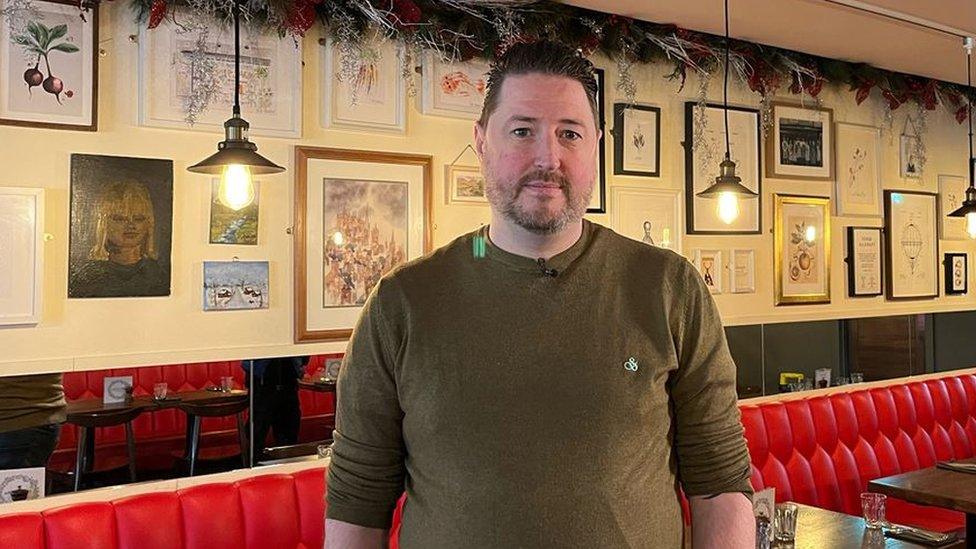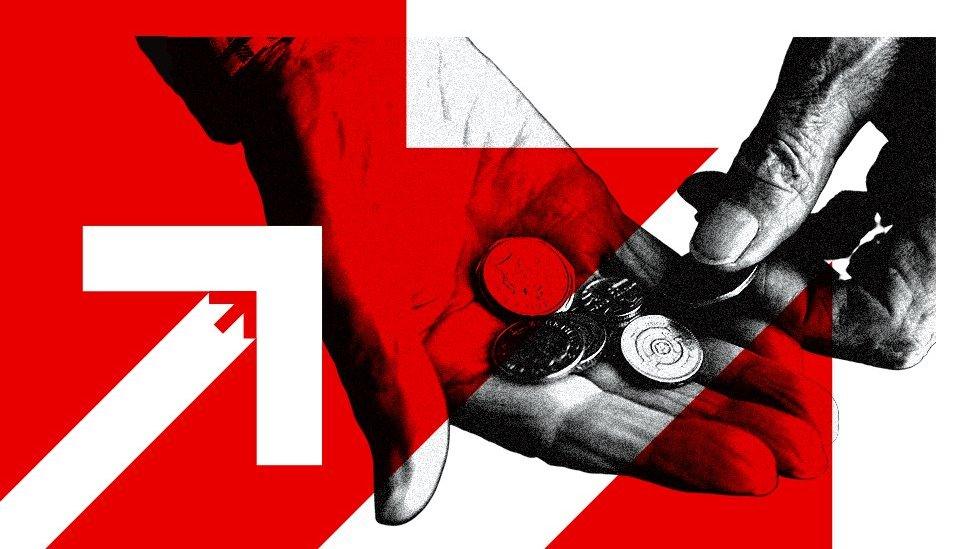Inflation: Restaurateur's challenges amid rising prices
- Published

Restaurant owner Jonny Taylor said the price of some foods was up 50% on last year
A Belfast-based restaurateur has spoken of the pressures facing the hospitality industry this Christmas with the rising costs of food.
Jonny Taylor was speaking before this month's inflation figure was announced.
Inflation has slowed to 3.9%, meaning prices are rising at their slowest rate in more than two years - but they are still rising.
Restaurants are trying to strike a balance with prices, to cover their costs without putting customers off.
Mr Taylor said vegetables were up 50% and proteins are up 10% on last year.
"Turkey is up 10%, pork belly is up 10%, cauliflower, we were buying a case of cauliflower last year for a tenner, this year it's £25, so it's a massive jump," said Mr Taylor, the owner and chef of Shed Bistro, on the Ormeau Road.
"Gas has actually come down in the last couple of months but it's still double where it was two years ago and electricity is up 300% on two years ago," he told BBC News NI.
As a result the restaurant has had to put up their prices which has annoyed some customers but he said they had no choice but to try to pass on some of the increases on to customers.
"We actually had a big group ring [us] and complain that we're up 16% on last year," he said.
"I appreciate that's frustrating, I'm extremely frustrated that my electricity is up 300% and there's nothing I can do about that."
He said that is why this year, more than ever, choosing menus and ingredients is so important as some things are too expensive and won't be on the menu.
"The perfect example would be salmon," he said.
"Six years ago when I started here, we did a smoked salmon starter, but at that point it was less than £10 per kilo and now it's over £20 per kilo I wouldn't even consider it as a starter anymore."
So far, this year, he said they are busier for dinner at weekends than last year but that midweek trade has also slowed this year.
"If we aren't sustainable, we just won't be here," he said.
"I do worry what's going to happen come January because a lot of restaurants that were struggling will hold on until December to try and get something and if they have a bad January and February they might just decide it's not worth it anymore and pull the plug," he added.
Related topics
- Published30 October 2023

- Published17 October 2023
